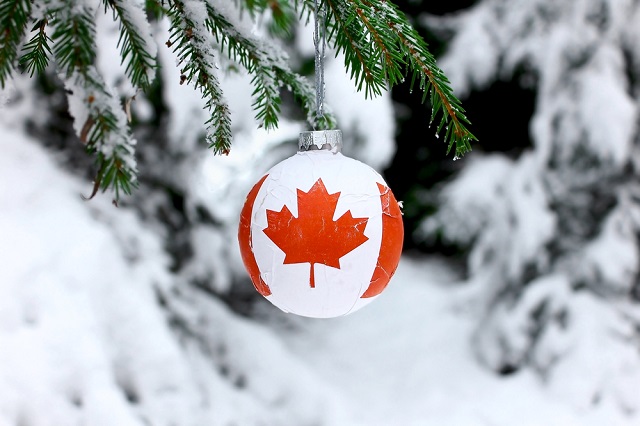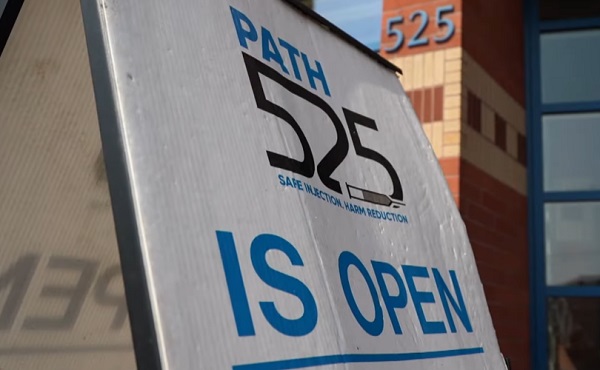National
Canadian Human Rights Commission mocked for attacking Christmas as form of ‘colonialism’

From LifeSiteNews
Citing Christmas as an ‘obvious example,’ the Canadian Human Rights Commission characterized celebrating the birth of Jesus Christ as ‘discrimination’ rooted ‘in Canada’s history of colonialism.’
The Canadian Human Rights Commission (CHRC) is being slammed for suggesting that those who celebrate Christian holidays, including Christmas, are exhibiting intolerance and perpetuating so-called “settler colonialism.”
According to a recent document the CHRC published on October 23, 2023, titled “Discussion Paper On Religious Intolerance,” holidays such as Christmas and Easter are forms of discrimination and religious intolerance.
The CHRC said that observing the birth of Jesus Christ is “an obvious example” of a type of religious bias that is rooted in colonialism.
“Discrimination against religious minorities in Canada is grounded in Canada’s history of colonialism,” reads the Commission’s paper.
The CHRC was immediately blasted by Conservative Party of Canada (CPC) MPs and others for being “ridiculous” and “woke.”
“This is ridiculous,” wrote CPC MP Jeremy Patzer on X (formerly Twitter) yesterday in response to the Commission’s paper.
This is ridiculous. Christmas is celebrated all around the world by people of different ethnic and religious backgrounds. This is another example of woke ideology fomenting within the federal government. I for one will be celebrating Christmas whole heartedly. Merry Christmas!🎄 https://t.co/9EtpLuWvRG
— Jeremy Patzer (@JeremyPatzerMP) November 21, 2023
“Christmas is celebrated all around the world by people of different ethnic and religious backgrounds. This is another example of woke ideology fomenting within the federal government. I for one will be celebrating Christmas whole heartedly. Merry Christmas!”
One concerned Canadian said that the CHRC itself is engaging in discrimination for “attacking” Christians’ right to celebrate the birth of Christ, a right Canada has upheld since its founding.
This is a direct attack on the founding beliefs of this country. Western countries, which are thriving democracies, were built by people grounded in Judeo-Christian values. The degradation of the faith, is in and of itself, is intolerant.
— Kerry Ozard (@OzardKerry67475) November 21, 2023
Despite the mainstream push to switch to the term “Happy holidays” in lieu of “Merry Christmas,” a Leger poll from December 2022 found that the overwhelming majority of non-Christian Canadians are content with being greeted by the words “Merry Christmas” during the season of Advent.
When the non-Christians were asked if they were “Offended when people greet me with ‘Merry Christmas’,” 92 said they disagreed with only 8 percent agreeing.
The CHRC is an independent federal institution created in 1977 that oversees holding up Canada’s human rights laws.
The CHRC claims that the history of holidays “manifests itself in present day systemic religious discrimination. An obvious example is statutory holidays in Canada.”
“Statutory holidays related to Christianity including Christmas and Easter are the only Canadian statutory holidays linked to religious holy days,” it said.
“As a result non-Christians may need to request special accommodation to observe their holy days.”
The European settlers that came to Canada, from France and then later from what is the modern-day United Kingdom, were Christian and included missionaries who came to try and spread the faith to the local indigenous populations.
Canada has observed Christmas since 1641, well before its official founding, according to some historical records. Despite this, the CHRC said that the nation’s “history with religious intolerance is deeply rooted in our identity as a settler colonial state.”
In 2021, a federal court directive mandated that all references to Christmas holidays be removed from all court calendars, however, this directive did not come from a complaint but instead was an internal decision.
Addictions
Ontario to restrict Canadian government’s supervised drug sites, shift focus to helping addicts

From LifeSiteNews
Doug Ford’s Progressive Conservative government tabled the Safer Streets, Stronger Communities Act that will place into law specific bans on where such drug consumption sites are located.
Ontario Premier Doug Ford is making good on a promise to close so-called drug “supervision” sites in his province and says his government will focus on helping addicts get better instead of giving them free drugs.
Ford’s Progressive Conservative government on Monday tabled the Safer Streets, Stronger Communities Act that will place into law specific bans on where such drug consumption sites are located.
Specifically, the new bill will ban “supervised” drug consumption sites from being close to schools or childcare centers. Ten sites will close for now, including five in Toronto.
The new law would prohibit the “establishment and operation of a supervised consumption site at a location that is less than 200 meters from certain types of schools, private schools, childcare centers, Early child and family centers and such other premises as may be prescribed by the regulations.”
It would also in effect ban municipalities and local boards from applying for an “exemption from the Controlled Drugs and Substances Act (Canada) for the purpose of decriminalizing the personal possession of a controlled substance or precursor.”
Lastly, the new law would put strict “limits” on the power municipalities and local boards have concerning “applications respecting supervised consumption sites and safer supply services.”
“Municipalities and local boards may only make such applications or support such applications if they have obtained the approval of the provincial Minister of Health,” the bill reads.
The new bill is part of a larger omnibus bill that makes changes relating to sex offenders as well as auto theft, which has exploded in the province in recent months.
In September, Ford had called the federal government’s lax drug policies tantamount to being the “biggest drug dealer in the entire country” and had vowed to act.
‘No’ new drug sites in Ontario, vows Health Minister
In speaking about the new bill, Ontario Minister of Health Sylvia Jones said the Ford government does not plan to allow municipal requests to the government regarding supervised consumption sites.
“Municipalities and organizations like public health units have to first come to the province because we don’t want them bypassing and getting any federal approval for something that we vehemently disagree with,” Jones told the media on Monday.
She also clarified that “there will be no further safe injection sites in the province of Ontario under our government.”
Ontario will instead create 19 new intensive addiction recovery to help those addicted to deadly drugs.
Alberta and other provinces have had success helping addicts instead of giving them free drugs.
As reported by LifeSiteNews, deaths related to opioid and other drug overdoses in Alberta fell to their lowest levels in years after the Conservative government began to focus on helping addicts via a recovery-based approach instead of the Liberal-minded, so-called “safe-supply” method.
Despite public backlash with respect to supervised drug consumption sites, Health Canada recently approved 16 more drug consumption sites in Ontario. Ford mentioned in the press conference that each day he gets “endless phone calls about needles being in the parks, needles being by the schools and the daycares,” calling the situation “unacceptable.”
The Liberals claim their “safer supply” program is good because it is “providing prescribed medications as a safer alternative to the toxic illegal drug supply to people who are at high risk of overdose.”
However, studies have shown that these programs often lead an excess of deaths from overdose in areas where they are allowed.
While many of the government’s lax drug policies continue, they have been forced to backpedal on some of their most extreme actions.
After the federal government allowed British Columbia to decriminalize the possession of hard drugs including heroin, cocaine, fentanyl, meth and MDMA beginning January 1, 2023, reports of overdoses and chaos began skyrocketing, leading the province to request that Trudeau re-criminalize drugs in public spaces.
A week later, the federal government relented and accepted British Columbia’s request.
Alberta
Alberta government announces review of Trudeau’s euthanasia regime

From LifeSiteNews
Alberta announced it ‘is reviewing how MAID is regulated to ensure there is a consistent process as well as oversight that protects vulnerable Albertans, specifically those living with disabilities or suffering from mental health challenges.’
The Conservative provincial government of Alberta is pushing back against the Canadian federal government’s continued desire to expand euthanasia in the nation, saying it will launch a review of the legislation and policies surrounding the grim practice, including a period of public engagement.
The United Conservative Party (UCP) government under Premier Danielle Smith in a press release said the province needs to make sure that robust safeguards and procedures are in place to protect vulnerable people from being coerced into getting euthanatized under the MAiD (Medical Assistance in Dying) program.
“Alberta’s government is reviewing how MAID is regulated to ensure there is a consistent process as well as oversight that protects vulnerable Albertans, specifically those living with disabilities or suffering from mental health challenges,” said the government Monday.
The government said a online survey regarding MAiD open to all Albertans who have opinions about the deadly practice will be available until December 20.
“We recognize that medical assistance in dying is a very complex and often personal issue and is an important, sensitive and emotional matter for patients and their families,” said Alberta’s Minister of Justice and Attorney General Mickey Amery.
Amery said it is important to ensure this process has the “necessary supports to protect the most vulnerable.”
The government said that it will also be engaging with academics, medical associations, public bodies, as well as religious organizations and “regulatory bodies, advocacy groups” regarding MAiD
The government said all information gathered through this consultation will “help inform the Alberta government’s planning and policy decision making, including potential legislative changes regarding MAID in Alberta.”
When it comes to MAiD, Prime Minister Justin Trudeau’s Liberal government sought to expand it from the chronically and terminally ill to those suffering solely from mental illness.
However, in February, after pushback from pro-life, medical, and mental health groups as well as most of Canada’s provinces, the federal government delayed the mental illness expansion until 2027.
Alberta’s Minister of Mental Health and Addiction Dan Williams said that the UCP government has been “clear” that it does not “support the provision of medically assisted suicide for vulnerable Albertans facing mental illness as their primary purpose for seeking their own death.”
“Instead, our goal is to build a continuum of care where vulnerable Albertans can live in long-term health and fulfilment. We look forward to the feedback of Albertans as we proceed with this important issue,” he noted.
The Alberta government said that as MAiD is “federally legislated and regulated” it is main job will be to try and make sure that it protects “vulnerable individuals” as much as possible.
Alberta’s Minister of Health Adriana LaGrange reaffirmed that the Alberta government “does not support expanding MAID eligibility to include those facing depression or mental illness and continues to call on the federal government to end this policy altogether.”
The number of Canadians killed by lethal injection under the nation’s MAiD program since 2016 stands at close to 65,000, with an estimated 16,000 deaths in 2023 alone. Many fear that because the official statistics are manipulated the number may be even higher.
To combat Canadians being coerced into MAiD, which LifeSiteNews has covered, the combat pro-life Delta Hospice Society (DHS) is offering a free “Do Not Euthanize Defense Kit” to help vulnerable people “protect themselves” from any healthcare workers who might push euthanasia on the defenseless.
-

 Brownstone Institute2 days ago
Brownstone Institute2 days agoThe Most Devastating Report So Far
-

 Business2 days ago
Business2 days agoCarbon tax bureaucracy costs taxpayers $800 million
-

 ESG2 days ago
ESG2 days agoCan’t afford Rent? Groceries for your kids? Trudeau says suck it up and pay the tax!
-

 John Stossel2 days ago
John Stossel2 days agoGreen Energy Needs Minerals, Yet America Blocks New Mines
-

 Daily Caller2 days ago
Daily Caller2 days agoLos Angeles Passes ‘Sanctuary City’ Ordinance In Wake Of Trump’s Deportation Plan
-

 Alberta2 days ago
Alberta2 days agoProvince considering new Red Deer River reservoir east of Red Deer
-

 Addictions2 days ago
Addictions2 days agoBC Addictions Expert Questions Ties Between Safer Supply Advocates and For-Profit Companies
-

 Aristotle Foundation1 day ago
Aristotle Foundation1 day agoToronto cancels history, again: The irony and injustice of renaming Yonge-Dundas Square to Sankofa Square





